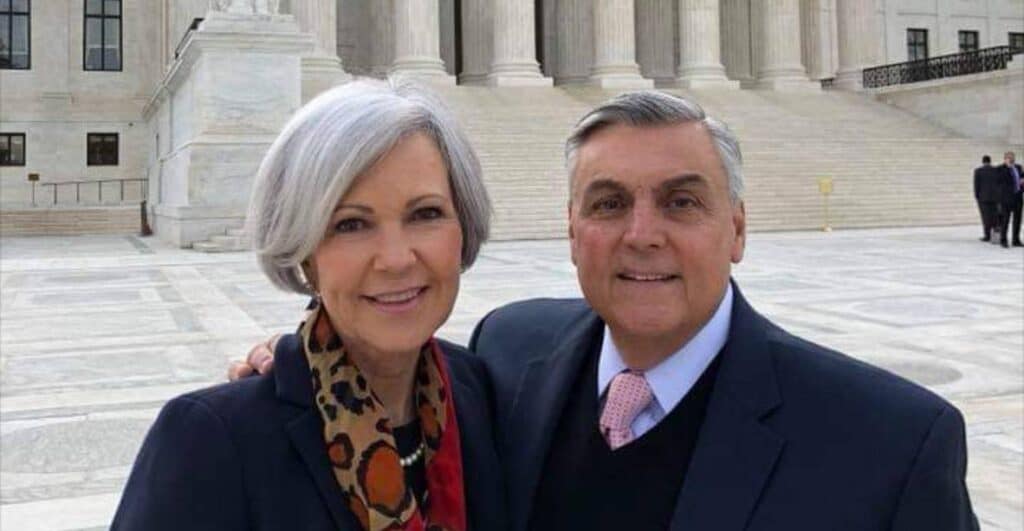Cases
Lucia v. SEC
CASE: Lucia v. Securities and Exchange Commission
STATUS: Closed
NCLA ROLE: Counsel
COURTS HEARD IN: 9th Cir., S.D. CA
ORIGINAL COURT: U.S. Securities and Exchange Commission Administrative Proceeding
OPENED: October 2, 2018
AGENCIES: Securities and Exchange Commission
FOCUS AREAS:
CASE SUMMARY
Did we achieve our litigation objective? Partially, as Ray Lucia settled his case on favorable terms.
Court Outcome: The client dropped his case against the SEC.
Larger Impact: Ray Lucia’s case caught the attention of Michelle Cochran, who chose NCLA to represent her against the SEC. Cochran’s case resulted a 9-0 victory against the SEC in the U.S. Supreme Court on the very same legal issues at stake in Ray Lucia’s case.
Summary: In 2018, NCLA filed a complaint seeking declarative and injunctive relief against the U.S. Securities and Exchange Commission (SEC) in the U.S. District Court for the Southern District of California in the case of Ray Lucia and his former company. The suit before Judge Sabraw sought to prevent Mr. Lucia from being compelled to submit—yet again—to a proceeding before an unconstitutional Administrative Law Judge (ALJ) at the SEC. NCLA also represented Mr. Lucia in the related matter remanded for hearing before “a properly appointed official … or the Commission itself.”
Mr. Lucia suffered irreparable professional, reputational and financial harm from the SEC’s first unconstitutional proceeding. He subsequently endured several years of protracted litigation successfully taking his case all the way to the U.S. Supreme Court based on the argument that the first ALJ he appeared before was improperly appointed.
Rather than retrying the remanded Lucia case before the Commission itself or in federal district court, as it easily could have done, the SEC chose to proceed once again in front of a constitutionally defective ALJ. That time, the SEC knew full well that the ALJ is defective, because the U.S. Solicitor-General conceded as much in filings and argument before the U.S. Supreme Court. The problem was that the ALJ enjoyed multiple layers of protection from removal, which the Supreme Court had deemed unconstitutional. Mr. Lucia also had remaining constitutional objections.
On June 16, 2020, NCLA finally negotiated a settlement with the U.S. Securities and Exchange Commission (SEC) on behalf of its clients. Mr. Lucia waged a long, contentious battle, refusing to bow to an agency with unlimited resources unwilling to admit that its prosecution efforts had become wholly disproportionate to the alleged infraction. Having fought this landmark case all the way to the U.S. Supreme Court once to vindicate his right to be tried before a lawfully appointed administrative law judge (ALJ), this settlement allowed Ray to get on with his life.
In the settlement, Mr. Lucia neither admited nor denied wrongdoing, and he was immediately eligible to reapply for association with registered entities such as securities brokers as well as to serve as an employee for related entities. In exchange for the final resolution of all claims against him, Mr. Lucia agreed to pay a penalty of $25,000 and to drop his affirmative case against SEC.
OUR TEAM
ADDITIONAL VIDEOS
Silenced for Life: The Injustice of Government Censorship of Speech
The Punishment is the Process
RELEVANT MATERIALS
NCLA FILINGS
Order Making Findings and Imposing Remedial Sanctions and a Cease-And-Desist Order
June 16, 2020 | Read More
Appellants’ Opening Brief in the United States Court of Appeals for the Ninth Circuit
January 29, 2020 | Read More
Order Denying Appellants’ Motion for an Injunction Pending Appeal
January 23, 2020 | Read More
Appellants’ Reply Brief in Support of Their Motion for Injunction Pending Appeal
January 9, 2020 | Read More
Appellants' Opposed Motion for Injunction Pending Appeal
December 4, 2019 | Read More
PRESS RELEASES
Ray Lucia’s Sweetheart Settlement Proves that for the SEC the Sour Process Is the Punishment
June 17, 2020 | Read More
NCLA Asks Ninth Circuit Court of Appeals to Halt Unconstitutional SEC Hearing
December 4, 2019
NCLA Files Suit Over Unconstitutional SEC Appointees
November 29, 2018
IN THE MEDIA
After Almost a Decade of Fighting, the SEC and Ray Lucia Finally Settle, Investment News
Investment News
February 7, 2023
Lucia Ends Eight-Year Battle with the SEC
Regulatory Compliance Watch
February 7, 2023
‘Buckets of Money’ Advisor Settles With SEC After Long Legal Battle
ThinkAdvisor
February 7, 2023
Radio host Ray Lucia settles with SEC but war over ALJ removals wears on
Reuters
February 7, 2023
Biden’s Hurdle: Courts Dubious of Rule by Regulation
The Wall Street Journal
February 7, 2023
CASE HIGHLIGHTS
Media Mention
February 7, 2023
Radio host Ray Lucia settles with SEC but war over ALJ removals wears on
Source: Reuters
Media Mention
February 7, 2023
‘Buckets of Money’ Advisor Settles With SEC After Long Legal Battle
Source: ThinkAdvisor
Press Release
June 17, 2020
Ray Lucia’s Sweetheart Settlement Proves that for the SEC the Sour Process Is the Punishment

